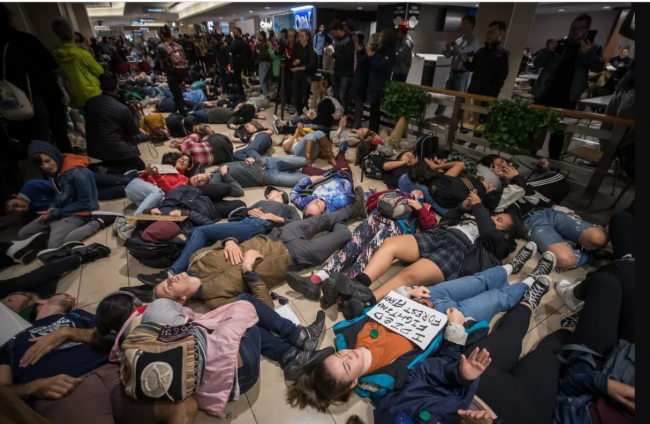Articles Menu

Canada’s young people are filled with a sense of doom and gloom, not just about the planet’s climate change future, but also about their government’s lack of action in dealing with it.
That’s according to a recent study from Lakehead University, in which researchers surveyed 1,000 people ages 16 to 25 across the country on their feelings around climate change and the future.
Almost eight in 10 reported that climate change has had an impact on their overall mental health, 37 per cent said that their feelings about climate change have a negative impact on their daily functioning and 56 per cent reported feeling afraid sad, anxious and powerless.
“No generation has faced an existential crisis of this scale,” said Lindsay Galway, associate professor of Health Sciences at Lakehead University in Thunder Bay and one of the paper’s co-authors.
“Young people across the country are suffering rather profound mental and emotional distress.”
She said the research was prompted by the fact that though there is growing evidence that climate change has consequences to mental and emotional health, there is, surprisingly, not a lot of Canadian data on the subject.
Inquiries put to young people in the survey included asking about their emotions about climate change, their perspectives on a climate-changed future, and their feelings on federal government actions. The picture that emerged was this: young people are suffering mentally and emotionally not only because of their anxiety about their future, but because they’re frustrated by the perceived lack of action from the government and the lack of opportunities to be heard, the findings state.
A majority that the government wasn’t doing enough to avoid a climate catastrophe (64 per cent), that it wasn’t protecting them, the planet or future generations (58 per cent) and that it wasn’t taking their concerns seriously enough (62 per cent).
Galway also found that, for the most part, young people are suffering this distress alone.
“There’s a real climate of silence around this problem,” she said. “One third of young people are not talking to anyone really about these challenges that they’re facing. And a third say that when they do, they feel either ignored or dismissed.”
Almost three out of four young people said they think a future affected by climate change is frightening; 39 per cent said that the future world is so frightening that they would hesitate to bring a child into it.
What those young people want, according to Galway’s research, is a legitimate stake in the action, the opportunity to not only have their voices heard, but to take action toward mitigating the problem.
And they want their schools to go beyond teaching the science of climate change and include more solution-focused courses.
“It’s hard to really imagine growing up in the context of a planet where we really aren’t sure yet if the action that’s necessary to really protect our collective futures is going to happen,” said Galway. “I can’t imagine how that feels … especially alone and without support and without a sense that adults are actually listening to you and care about your future.
“They feel betrayed.”
That kind of mindset could have long-term consequences, one of which might be the notion of learned helplessness, said University of Toronto psychology professor Steve Joordens.
“Essentially these youth see attempts to turn the tide going nowhere. They could be feeling like there is no way to stop this direction and could just stop trying,” said Joordens.
“The feeling of learned helplessness is related to depression … so growing up feeling there is a danger approaching that one cannot avoid … that can certainly negatively impact one’s mental health.”
On a more hopeful note, Galway said her parallel research indicates that more and more young people are taking things into their own hands — making their way toward careers that are doing the kind of work they know is necessary for the mitigation of climate change, and coming together to demand accountability for their futures from governmental decision makers.
“We all care about young people … the rest of it doesn’t matter. We need to address climate change. That’s really the core of what this is about,” said Galway. “Listen to young people and find courage for the transformative action, which is hard, but entirely necessary.”